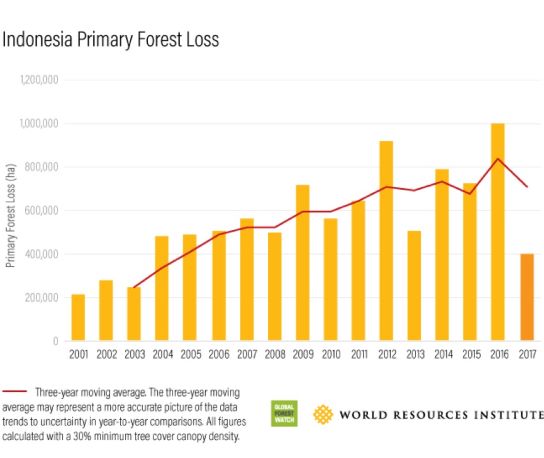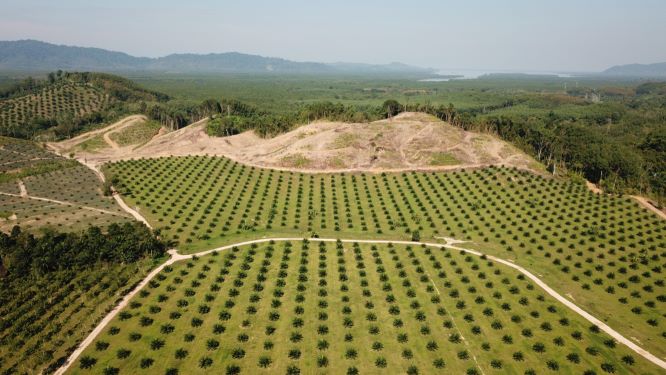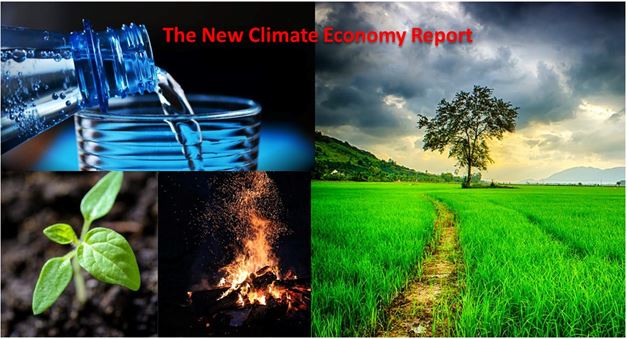Norway To Pay Indonesia for Successfully Cutting Forest Emissions
 A green u-turn for Indonesia
A green u-turn for Indonesia
One amongst the rare tropical countries in the World, Indonesia has recorded a steep 60 percent drop in primary forest loss in 2017, compared to 2016 and now it is paying off.
The Norwegian government has agreed to pay Indonesia for carbon emission cuts after a dramatic drop in deforestation in 2017 and will continue to make payments if the trend continues.
Indonesia’s environment minister, Siti Nurbaya Bakar, and her Norwegian counterpart, Ola Elvestuen, made the announcement in Jakarta this month. The payment, whose amount is yet to be determined, is for Indonesia preventing the emission of 4.8 million tons of carbon dioxide equivalent (CO2e) through reducing its rate of deforestation in 2017. The country’s green groups estimate the figure to be more than US$20 million.
The payments are part of a US$1 billion (S$1.35 billion) scheme Indonesia and Norway signed way back in 2010 whose aim was to reward Indonesia for efforts that reduce deforestation, improve forest preservation and cut emissions of planet-warming carbon dioxide (CO2).
“Multiple factors contributed to the sudden downturn in Indonesia’s forest loss and associated emissions in 2017,” said WRI Senior Fellow Frances Seymour. “Favourable weather reduced the risk of repeating the catastrophic forest fires of 2015. Low prices for palm oil dampened incentives to expand oil palm plantations into forests.”
“Nevertheless, the Indonesian government can legitimately claim that its efforts contributed to the decline, having strengthened forest protection through new policies and enhanced enforcement.”
Indonesia Cuts Its Forest Losses
As reported by Global Forest Watch last year, Indonesia was a rare bright spot in the otherwise bleak landscape of 2017 tree cover loss. While most countries in the tropics contributed to another year of record-breaking losses, Indonesia experienced a 60 percent drop in primary forest loss compared to 2016.
Indonesia, home to the world’s third-largest span of tropical rainforest, after Brazil and the Democratic Republic of Congo, has pledged to reduce its emissions at least 29 percent by 2030 compared to business as usual, and up to 41 percent with international support (such as REDD+ finance). The recent announcement sends a signal about the international community’s willingness to pay for climate mitigation results through the REDD+ framework, which can serve to raise the profile of opportunities to other countries to further reduce forest-based emissions. Indonesia is currently involved in a bitter trade dispute with European countries that want to restrict imports of palm oil-based biofuels because they’re associated with deforestation. The commitment can encourage the Indonesian government to continue its pledge of reducing CO2 emissions due to deforestation, in turn complementing international efforts to take out rainforest deforestation out of the commodity supply chains.












